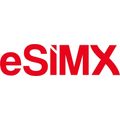Chez YeeSim, notre mission est simple : faciliter la connectivité des données pour tous les voyageurs. Que vous exploriez de nouvelles destinations, télétravailliez ou participiez à des réunions internationales, restez connecté en toute simplicité avec YeeSim.

Chez YeeSim, notre mission est simple : faciliter la connectivité des données pour tous les voyageurs. Que vous exploriez de nouvelles destinations, télétravailliez ou participiez à des réunions internationales, restez connecté en toute simplicité avec YeeSim.
Code Promo
Forfaits de données eSIM YeeSiM pour le Cambodge
Questions fréquemment posées
YeeSiM propose-t-il une eSIM à données illimitées pour le Cambodge ?
YeeSiM ne fournit pas d’eSIM à données illimitées pour le Cambodge. Ils proposent plutôt des forfaits de données fixes. Par exemple, l’eSIM Asia (7 zones) offre 50 Go de données pendant 180 jours au prix de 102, 00 USD, et une autre option est un forfait de 20 Go valable pendant 30 jours coûtant 46, 00 USD. Ces alternatives peuvent être plus économiques pour la plupart des voyageurs, sauf si l’utilisateur nécessite un usage très élevé de données.
YeeSiM propose-t-il une eSIM cambodgienne avec numéro et SMS ?
YeeSiM ne propose pas de forfaits eSIM pour le Cambodge comprenant un numéro de téléphone ou la capacité SMS. Seules des options eSIM uniquement données sont disponibles auprès du fournisseur. Les voyageurs peuvent toujours utiliser des applications VoIP populaires telles que WhatsApp, Telegram et iMessage sur la connexion de données pour les communications vocales et textuelles.
Combien de forfaits de données YeeSiM propose-t-il pour le Cambodge?
YeeSiM fournit 21 forfaits de données multi‑pays couvrant le Cambodge. Les forfaits disponibles vont de 5 $ à 202 $, offrant des plafonds de données de 1 Go à 50 Go, avec des périodes de validité de 1 à 180 jours. Certains forfaits ont un plafond quotidien (5 options) et d'autres sont à données fixes (16 options), et le tethering est autorisé sur les forfaits concernés.
Résumé avec Gen AI. Dernière mise à jour:




